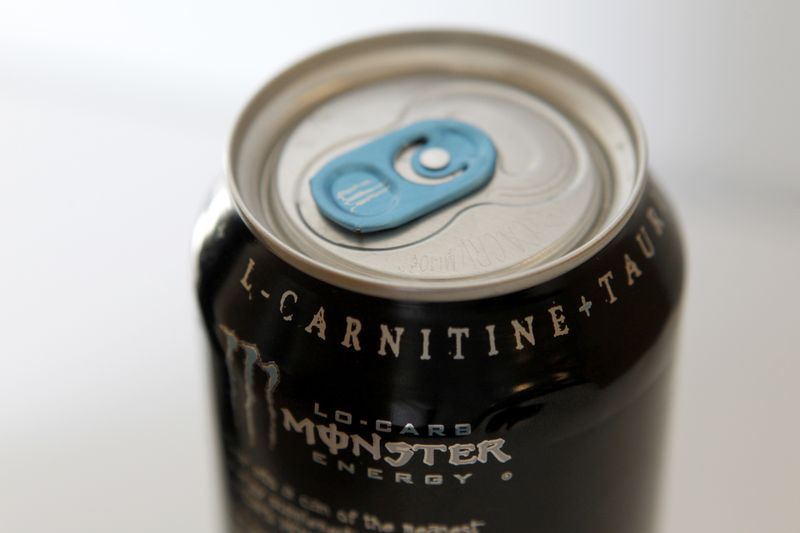By Blake Brittain
(Reuters) - Monster Beverage Corp (NASDAQ:MNST), the maker of Monster Energy drink, on Wednesday persuaded a California federal court to block rival Vital Pharmaceuticals, maker of Bang Energy, from marketing its drinks as containing "Super Creatine."
The decision follows a jury verdict in September that awarded Monster $293 million in its lawsuit against Bang for false advertising and other alleged misconduct.
U.S. District Judge Jesus Bernal said the order of a permanent injunction was necessary to keep Monster from continuing to lose prospective customers and market share because of Bang's "Super Creatine" labeling.
The jury agreed in September with Monster's argument that Bang's ingredients do not include any actual creatine, a organic compound that is typically taken as a supplement to enhance muscle development, and that Bang misled customers about the drink's benefits.
Bernal's order requires Bang and its founder Jack Owoc to stop using "Super Creatine" in marketing, take down related ads and issue corrective statements.
Representatives for Bang did not immediately respond to a request for comment.
Monster's attorney John Hueston said the decision was an "important victory" for the company to "prevent further harm from Bang's and its founder's campaign of false statements."
Bang has become one of the best-selling energy drinks in the United States behind leading brands like Monster and Red Bull.
Monster sued Bang in 2018. It accused Bang and Owoc of touting their energy drink with "Super Creatine" as a "miracle drink" that can "reverse mental retardation" and help cure neurological disorders.
Bang denied the false advertising allegations. After the verdict, it said a permanent injunction was unnecessary.

But Bernal said Wednesday that Bang used "Super Creatine" to distinguish its drinks from Monster's and continued to influence potential customers by selling cans with the label after the verdict.
Bernal dismissed Bang's argument that forcing it to destroy existing "Super Creatine" cans would "cause millions of dollars in losses," disrupting its supply lines and leaving it unable to match consumer demand.